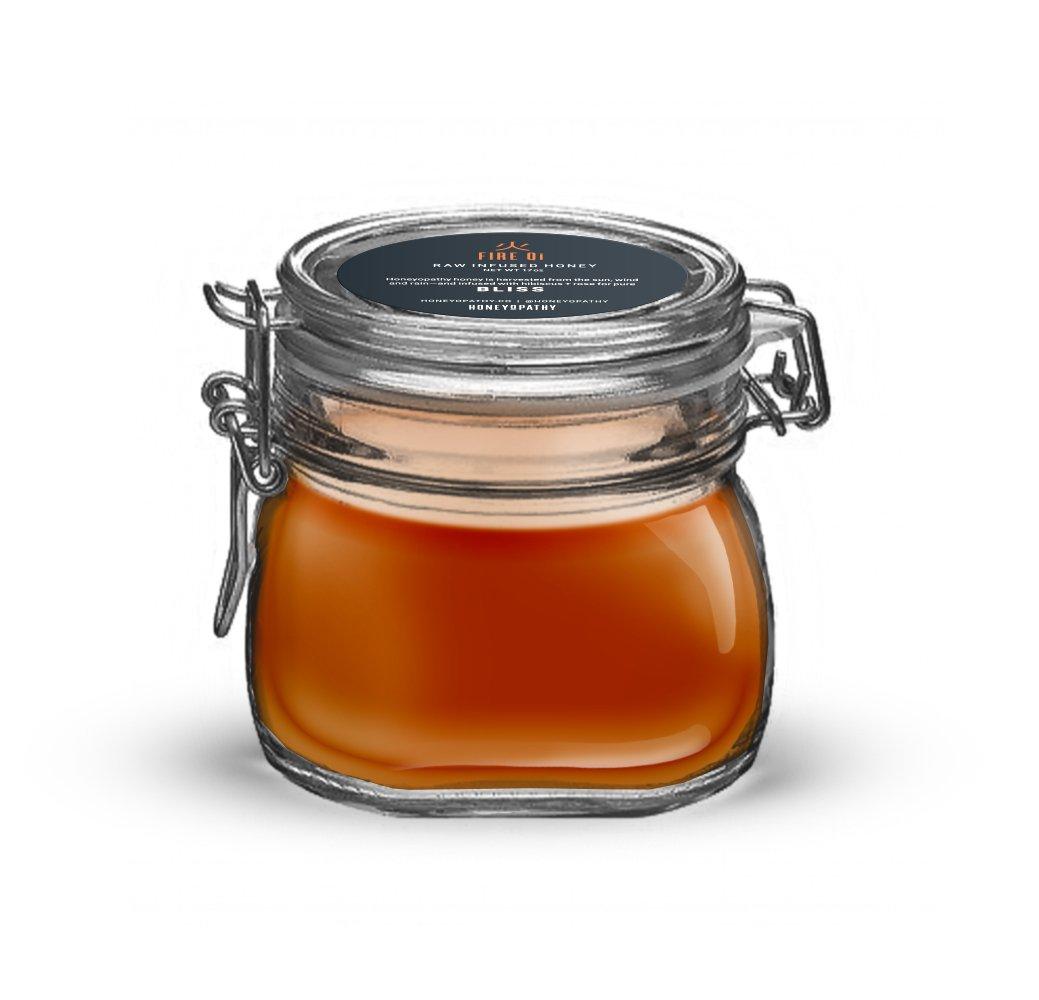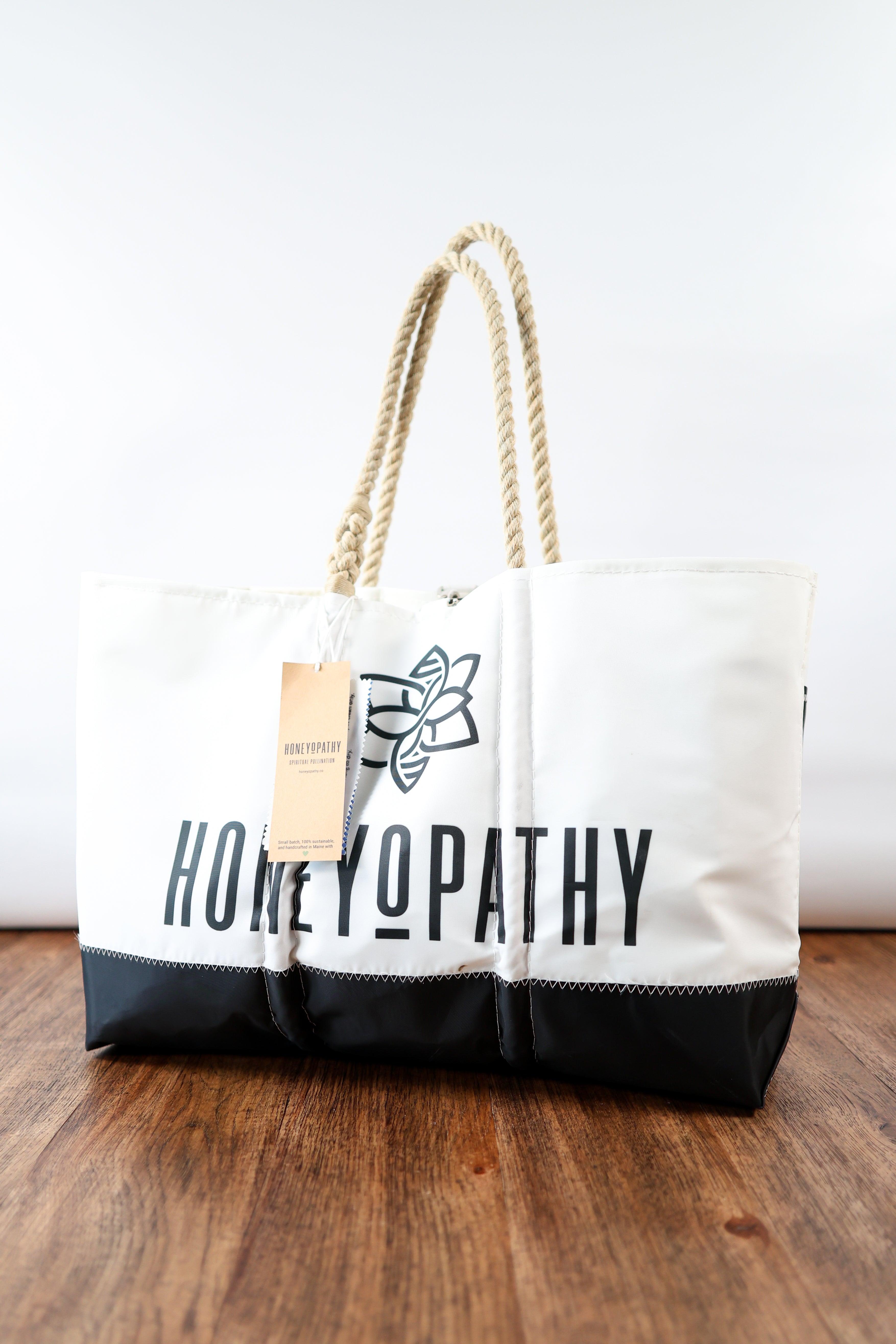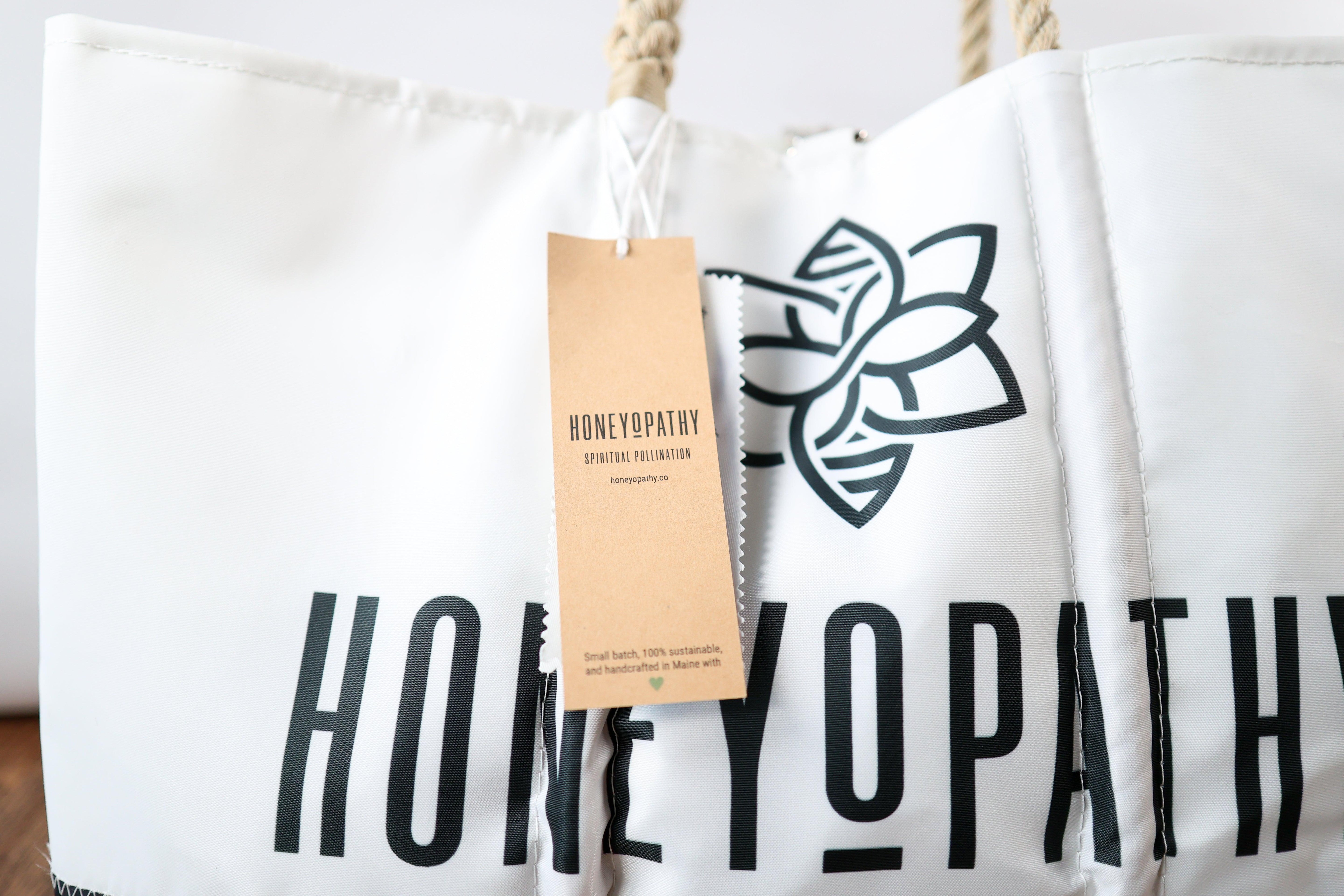At Honeyopathy, it is our mission is to support groups that promote sustainable and biodynamic beekeeping through education, research as well as honeybee sanctuaries, where people can experience a beautiful landscape in which honeybees and other pollinators can live, heal and thrive. That's why we donate 6% of revenue to the greater bee community.
Why Bees Are Important
Honeybees are not just honey producers—they are the best among all the stinging insects at creating formic acid—an essential acid and the basis for all plant life.
More importantly, honeybees are the best pollinators. Honeybees are the only inspects that can over-winter as a colony and then reappear in the spring with an arsenal of over 10,000 worker bees (per hive) to aid in pollinating 40-70% of what we consume in nature such as apples, peaches, strawberries, nuts, avocados, broccoli, and cucumbers as well as medicinal plants such as Echinacea, Angelica, Rosemary, and Sage.
If the bee disappears from the surface of the Earth, man would have no more than four years left to live.” ~Albert Einstein
Moreover, bees are a barometer or an early warning sign for all that is unhealthy for us in the environment today. Depletion of the soil, pollution of our water and atmosphere, lack of plant diversity, increased use of toxins, and a focus on profit over health will ultimately destroy many forms of life, including our own.
Why They’re In Trouble
In the 1960s and 1970s, waves of massive death rates of bee colonies were reported in Europe. During the next decade, the varroa mite, imported from the Far East, claimed an increasing number of hives, and beekeepers lost between half to two-thirds (and in some cases all) of their colonies in a single year!.The same pattern repeated itself in America a few years later.
In 1996 approximately sixty percent of the honeybees in the United States had been lost with some states showing losses of up to ninety percent. With an average colony numbering 40,000 worker bees, that's a staggering reduction of colonies from seven million to two-and-a-half million.
The impact in nature is considerable. The Colony Collapse Disorder (CCD) has raised the flag from orange to red and we are importing thousands of nucleus colonies from Australia to guarantee the almond and citrus fruit pollination in California.
Other health threats plague the bee population in addition to the varroa mites. They include tracheal mites, foul brood, intestinal illness (nosema), the small African hive beetle and all kinds of bacteria and viruses have been working on decimating the bee colonies.
What's the cause?
The scientific community reports that the present loss in vitality and reduced capability of survival of the honeybee is a result of:
- Neurotoxic pesticides
- Mites & viruses
- Mono-crop agribusiness
- Migratory honey beekeeping
In addition to these conventional agricultural practices using monocultures and poisons, our attempts at making beekeeping profitable (and not sustainable) has undermined their survival. These practices include:
- Artificial queen breeding
- Recycled wax or plastic foundations
- Feeding sugar/corn syrup in large quantities
- Exploitive honey harvests
- Swarm prevention
- Migratory beekeeping
What's Being Done
Honeyopathy donates profits to Spikenard Farm Honeybee Sanctuary and The Bee Girl Organization both of which were founded to research sustainable beekeeping practices. They are committed to teaching and spreading the true nature of the honeybee and her innate needs in order to heal the damages we have inflicted on her with modern beekeeping methods, agricultural practices and mobile devices that have been developed over the last century.
Join the spiritual pollination revolution with Honeyopathy, Spikenard Farm Honeybee Sanctuary and Sara The Bee Girl!



















Leave a comment